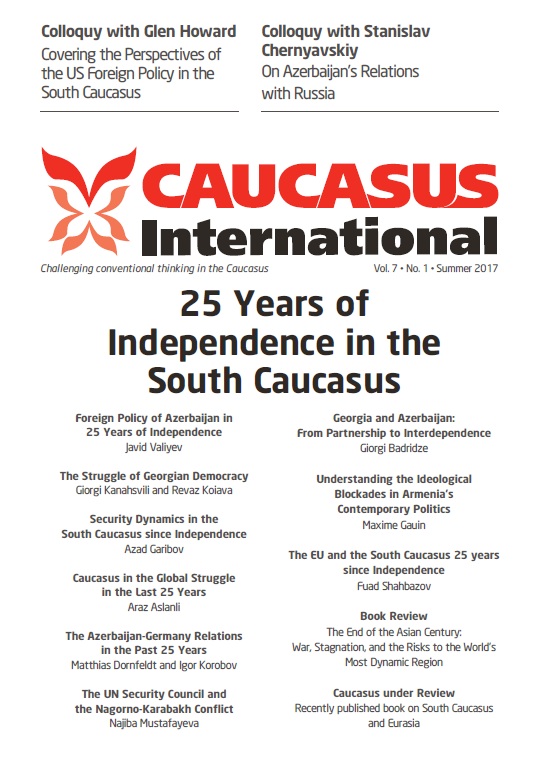Understanding the Ideological Blockades in Armenia’s Contemporary Politics
Armenia has been consistently violating international law since the declaration of independence in 1990 – a political choice which impedes not only regional peace, stability, and security, but also the interests of its own people. As a sovereign yet an unreliable member of international community, Armenia, has invaded a neighboring country, Azerbaijan, and refused to implement relevant UN resolutions. It has repeatedly made irredentist claims against the territorial integrity of another neighboring state, Turkey, and when the Zurich protocols were signed between Turkey and Armenia to establish diplomatic relations and develop bilateral relations in 2009 Armenia suspended the ratification.1 Even worse, Armenian President Serj Sargsyan recently expressed territorial claims towards Turkey, saying that “liberating the historic territories in Western Armenia” (implying eastern Turkey) “depend on younger generations”.
Latest news
- 03/17/2020 Call for Submission: “Non-Alignment Movement and Its Perspective in International Affairs”. Deadline: 1 July 2020 2626 views
Popular articles
- 02/24/2020 The Role of Irredentism in Russia’s Foreign Policy 2536 views
- 02/24/2020 Construction of sub-national identity vis-à-vis parent state: Gagauz case in Moldova 2218 views
- 02/24/2020 The Conflict in Ukraine - The Geopolitics of Separatism and Divergent Identities (Commentary) 2073 views
- 02/24/2020 The Role of the Soviet Past in Contemporary Georgia 2044 views





